There are a lot of things that we SHOULD do because they are good for us. I’m guessing you already know what they are, unless you’ve been sleeping (8 hours a day, starting no later than 10pm, in a completely dark room, no phone plugged in by your head, no caffeine or alcohol in your system, having exercised more than 2 hours but definitely for at least 20 minutes daily, in a bed you use only for sleep and sex).
My sister and I like to joke that if we did all the things magazines recommend we could “easily do for 20 minutes a day,” we’d never have time to work. Or sleep. Or have sex.
I had to stop reading most magazines because I discovered that I was too receptive to advice. Advice is what most magazines offer, along with the subtext that you are not good enough yet. You are probably reading the wrong books, eating the wrong kind of hazelnuts, and wearing clothes sewed by slave labor.
Stop doing everything and start doing it all differently.
(Now you don’t have to read any more magazines!)
Many years ago, I learned that most advice is about the giver, rather than the receiver. “Let me tell you something,” doesn’t mean, “I have an insight I know you will really benefit from, given my understanding of your needs and personhood.” What it means is, “It’s time for a message about me and who I am.”
So, okay: It’s time for a message about me and who I am.
I am the kind of person who responds vigorously and swiftly to the audition announcement: “Plan Your Funeral” video shoot. A Seattle production company was “looking for real people to have a real, open conversation about death, about their lives, their loved ones, and how they prepare (or don’t prepare) for death.”
Ooooh, baby. My kind of fun.
They were hoping for intergenerational groups, so I emailed my mom, “Let’s put the fun in funeral!” She was (way) into it, and my son was willing (especially since it’s a paying gig), so we got to do the thing I want to advise everyone to do, even if you are not me: Talk in front of your loved ones about your relationship with each other.And death. And funerals.
We had a conference call with a producer, and whether or not our family gets cast, it was a wonderful thing for me. I foresaw no surprises in what my mother said about me and Leo, and of course, I wasn’t surprised by what I said about the two of them.
My mind and heart were blown by what Leo said about me. He used phrases like “compassionate force,” “source of warmth,” and “straightforwardness.”
“She’s a very important figure in my life,” he said, “a huge inspiration for my personality, an inspiration for how I see things, an inspiration for how I treat people.”
We have “a very open relationship,” he said. “As long as I’ve been a full aware human being, we’ve always talked in a very open way.”
This makes me a happy mother.
So here’s my advice: Get a stranger to moderate, and gather people a couple people you love together. Talk about your relationships. Talk about death. Talk about funeral planning. I know not everyone has a family they can talk with in this way, but I hope you have at least one other person in your life who is important to you. Telling a third party about your relationship with this person will bring out things you may not have said aloud.
Or recently. Or clearly. Or ever.
There may be discoveries and revelations. There may be reiterations; my mother and I have had many conversations about how much distance opened between us when I became a mother, which might have been news to Leo, but nothing shocking, I bet.
You may discover, as I did, that qualities of mine I had labeled on behalf of others as an occasionally perplexing and uncomfortable directness had come out as straightforwardness, warmth, and compassion.
Composition note: I had to wrestle SO HARD with myself not to crack a joke at the end of this piece. I worry that taking myself seriously will somehow come off wrong: sanctimonious, maybe, or self-righteous, or conceited (a term I’ve always hated, which I think gets used to mean self-complimentary, as if that’s a terrible thing). This is just another story from my life, and while there was humor during the call and afterward, I feel so vulnerable around this particular conversation that I want to undercut it the way I might do so in the company of my family. We have a way of calling out our peculiar loves with the perfectly balanced combination of affection and derision that Steve’s question to me — “How much would you pay to have this conversation every day?” — nicely delivers.
So, are you the kind of person who’d want to have such a conversation? Why or why not?

